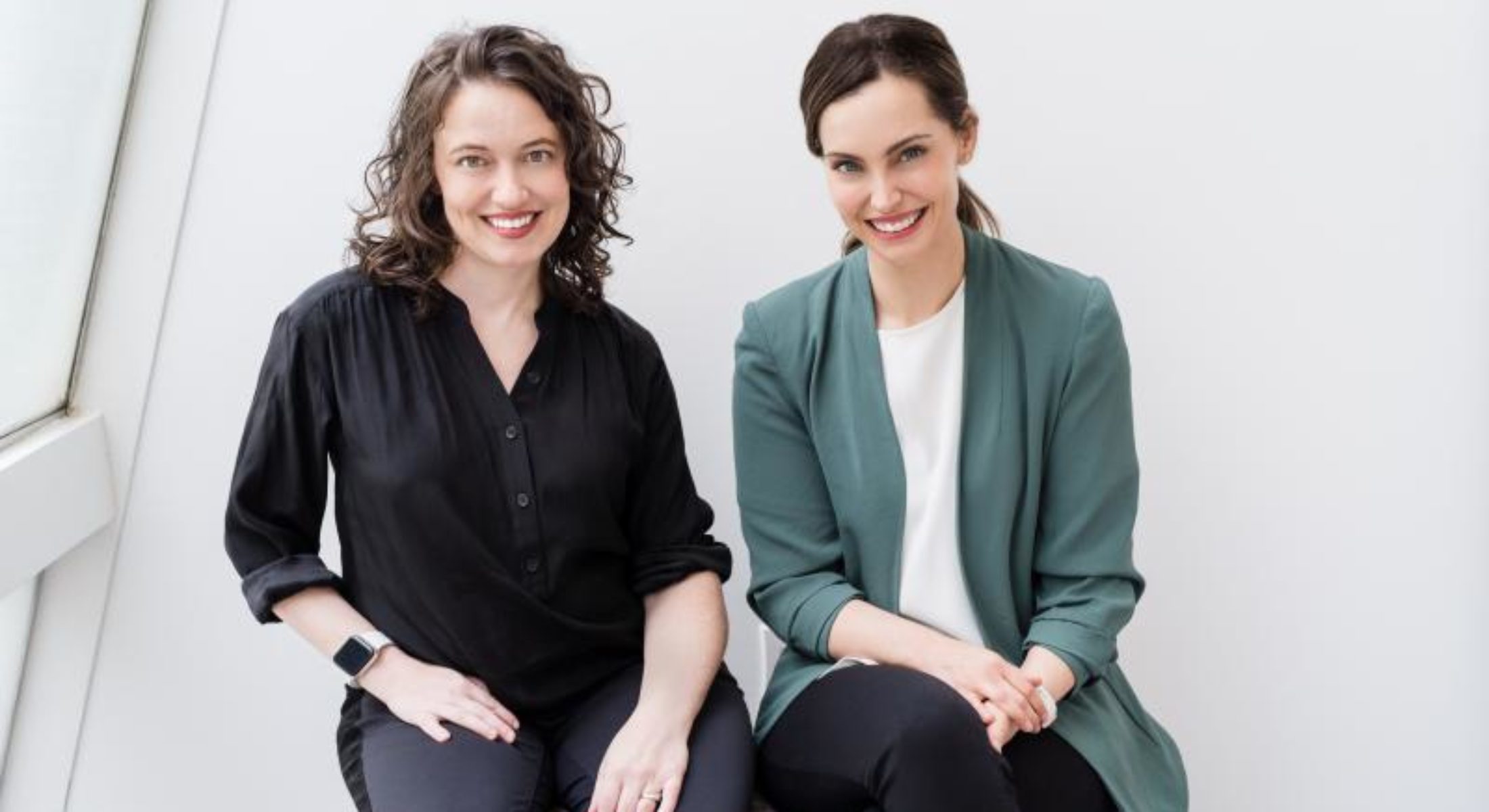Startup to Scaleup: Workit Health

Founded in 2015, Workit Health is the industry-leading provider of clinically proven telemedicine treatment for substance use disorder, offering online therapy, medication-assisted treatment, psychiatric support, and primary care via the Workit Health mobile app. The company partners with over 100 health plan partners, as well as Fortune 500 employers and state and local governments, for a total coverage of 93 million lives. Workit Health is also one of over 2,300 Certified B Corporations committed to social good through business. Endeavor spoke with Robin McIntosh and Lisa McLaughlin, Workit Health’s co-Founders/co-CEOs, on the heels of a milestone $118 million Series C to discuss their entrepreneurship journey so far and how they’re innovating the future of addiction care.
Your recent Series C raise was a huge milestone that attracted several big name investors. When did you realize that the technology behind successful smartphone apps could be leveraged to help people with addiction and mental health issues? When did you know what you were building was the right move?
Lisa: We knew early on at Workit that we were onto something big. We witnessed so many people getting caught in a maze of navigating traditional treatment options. They would get a referral to a disconnected number, or be added to a six month waitlist just for a therapist in-network with their insurance. People considered telehealth for addiction care to be a radical notion until our outcomes started coming in. We followed a cohort of patients for six months, and their outcomes were remarkable. Workit members stay in virtual treatment longer than inpatient averages, while reducing stress and developing real rapport with their clinicians.
Robin: Lisa and I worked in Silicon Valley and saw how dramatically apps were increasing access to everyday services — from food delivery to transportation. We saw a huge potential to bring this type of ease of use to the outdated system of addiction treatment. Having expert help in the palm of your hand can quite literally save someone’s life.
What has been one of the most encouraging moments?
Robin: For Lisa and myself, the rewarding experience is seeing our members thrive in their recoveries. Addiction can take everything, and at Workit Health we’re invested in giving people their lives back. Workit members tell their clinicians that the medications we prescribe have helped them feel normal for the first time in their lives. Our counselors have helped people repair their relationships with families and friends, and prep to re-enter the workforce. Then, through our Workit community, these members that have progressed in their journey can offer support and advice to those just beginning.
What aspect of the service Workit Health offers are you most proud of?
Lisa: We’re most proud of being fully patient-centered and focused on positive change. As people in recovery ourselves, Robin and I wanted to build the type of experience we’d looked for, but been unable to find, when we both got sober. So much of recovery has traditionally been shame-based, and our clinicians and counselors are dedicated to changing that. Workit is rooted in harm reduction, which means we let our members guide their own recovery. We don’t tell them what their journey should look like — we ask them where they want to go, and help them get there.
You are ultimately helping guide a major culture shift around the way people in the U.S. think about and treat addiction. What do you think it will take for cultural perspectives on addiction to change?
Robin: So many beliefs around addiction are rooted in stigma and a lack of understanding. Addiction is a chronic disease. It’s no different than diabetes, hypertension, or asthma. The more we accept addiction as a brain disease, the easier it is to see that the current state of treatment in America is untenable. We punish people from drug or alcohol use, then wonder why we’re dealing with record-breaking overdose rates. Lisa and I have a mantra at Workit: “We deserve better.”
Lisa: Traditionally, the idea of addiction has been very black and white. You’re either an addict who needs to be sent away to treatment, or you don’t have any type of problem. This idea of an extreme struggle with substances as the only use that warrants help keeps people from seeking support earlier on in the disease cycle. When your only option is to pack up to rehab for sixty days, it’s hard to justify that type of life change if your consequences aren’t incredibly severe. But 20% of Americans use substances in a risky way. Workit makes it easier to get help even if you just want to stop drinking wine on the weekends.
Are there any inherent skills you have that you think prepared you to succeed as an entrepreneur?
Robin: As a designer, I’m always interested in learning how things work. I love to roll up my sleeves, sink into a mess, and build new solutions. My natural curiosity and love of world building really paved the way for me to successfully grow a business.
Lisa: I was lucky enough to train as both a technologist and a clinician, which enables me to seamlessly transition between product and operational constraints and clinician needs to deliver quality evidence-based care. Non-linear and cross-disciplinary thinking comes naturally to me and you really need that fluidity to build for scale while keeping all the key stakeholders at the table.
How important has mentorship been in growing your business?
Lisa: Only about 30% of startups are co-founded by women, and female-founded startups receive less than 3% of all venture funding. Robin and I both chip away at this inequity by mentoring other women, and speaking. As Co-founders, we’ve seen firsthand the benefits of building together. Entrepreneurship is uniquely challenging — without mentors, it can feel incredibly lonely. It’s important to have people you know you can reach out to and receive feedback from.
You can learn more about Workit Health at workithealth.com